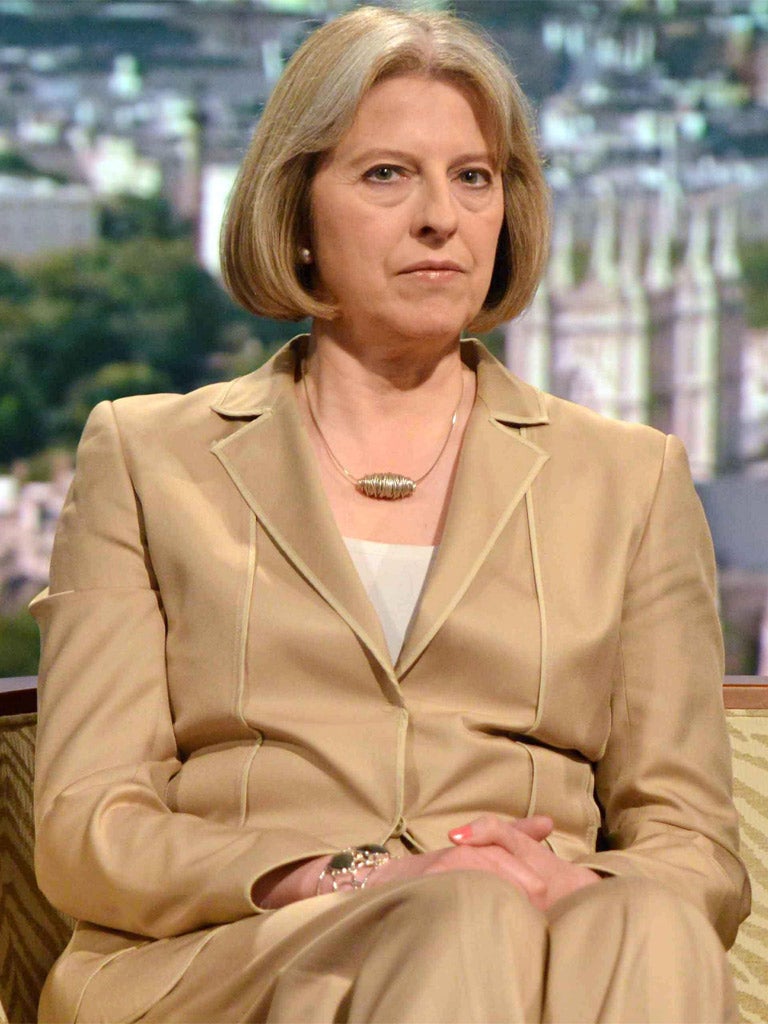Theresa May's claims to justify 'snoopers' charter' anger campaigners
The Home Office say the moves are essential to keep pace with criminals using new forms of communication

Your support helps us to tell the story
From reproductive rights to climate change to Big Tech, The Independent is on the ground when the story is developing. Whether it's investigating the financials of Elon Musk's pro-Trump PAC or producing our latest documentary, 'The A Word', which shines a light on the American women fighting for reproductive rights, we know how important it is to parse out the facts from the messaging.
At such a critical moment in US history, we need reporters on the ground. Your donation allows us to keep sending journalists to speak to both sides of the story.
The Independent is trusted by Americans across the entire political spectrum. And unlike many other quality news outlets, we choose not to lock Americans out of our reporting and analysis with paywalls. We believe quality journalism should be available to everyone, paid for by those who can afford it.
Your support makes all the difference.Theresa May has outraged civil liberties campaigners with a decision to press ahead with proposals to give police and security services sweeping new powers to monitor phone, email and internet use.
The Home Secretary will announce plans today to widen surveillance of suspects in criminal conspiracies. The Home Office insists the moves are essential to enable police to keep pace with criminals and terrorists who are increasingly using new forms of communication.
But civil liberties campaigners say the government is resorting to Big Brother tactics. Rachel Robinson, of Liberty, said: "Successive governments seek to watch the whole population instead of targeting real suspects. Just like the internet, any private home can be a crime scene, but should we install hidden cameras and microphones in every bedroom in the land?"
Liberal Democrat MPs, as well as some Tories, have criticised the scheme, branding it a "snoopers' charter".
Critics' anger is likely to be further enflamed by revelations that the Government is set to offer a blank cheque to internet and phone firms that will be required to track everyone's email, Twitter, Facebook and other web use
The Home Office confirmed it will foot the bill for collecting and storing the extra social media and web browsing records. The department defended its plan, saying that unless the new powers are brought in almost a third of terrorist plots and paedophile rings will soon be beyond detection. Under the proposals, companies would be required to keep a record of when, where and to whom messages were sent but police would not be able to see message contents.